The DTC Interview: Descope’s Slavik Markovich
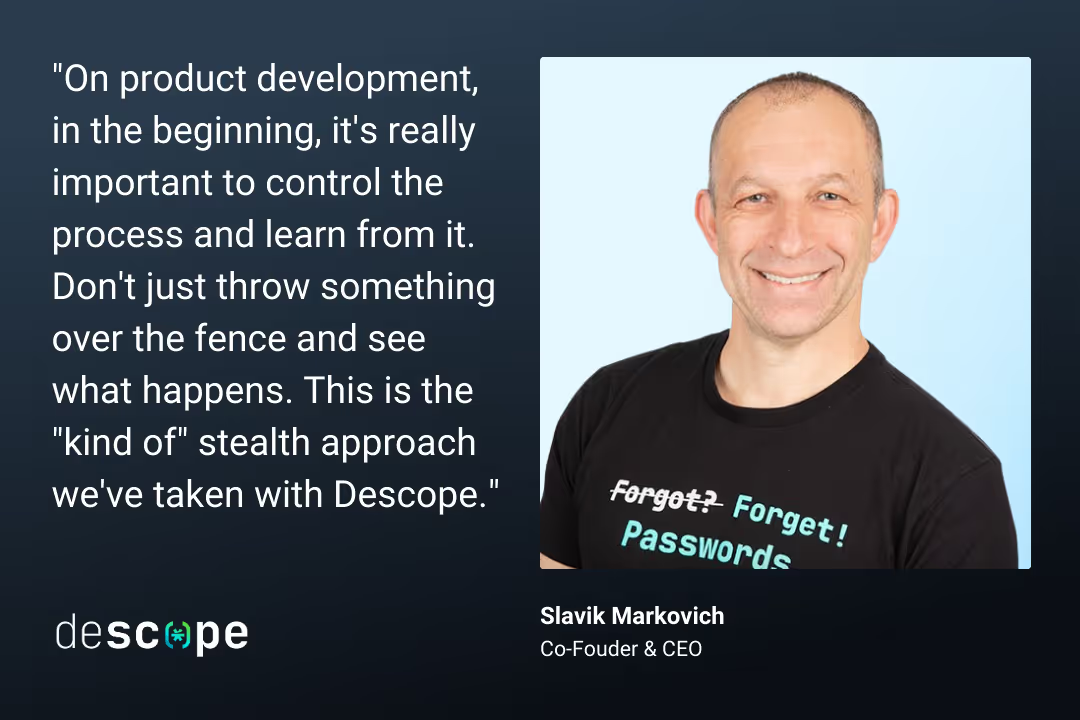
Slavik Markovich, co-founder and CEO of Descope, believes it’s the beginning of the end for character-based passwords.
Almost every digital interaction we have requires a password. And good password hygiene dictates that each one of those passwords be unique, complex, and nearly impossible to guess. That’s a huge pain point that most people avoid by reusing easy-to-guess passwords, creating significant vulnerabilities for themselves and the companies they work for.
Slavik and his co-founders have built several companies in the cyber security space, most recently Demisto, which was acquired by Palo Alto Networks in 2019. With Descope, they’re building a platform to help app developers build secure, frictionless end user authentication experiences. With Descope, devs can create secure sign up/sign in user journeys using drag-and-drop No Code tools, Descope’s SDKs, or, for fully bespoke development, Descope’s REST API. Descope works with modern authentication techniques including biometrics, magic links, OTP, TOTP, social logins, and SAML single sign-on for B2B applications.
We talked with Slavik to hear about what he and cofounders and team are building at Descope, what’s driving him to start another company, and the lessons he can impart from a couple of decades spent building businesses.
Why this, why now?
Slavik: Everyone hates passwords. I do. I’m sure you do. They’re easily exploitable and it’s dawned on everyone that passwords are just not the right way to go. We’re at an inflection point here. Everyone’s walking around with modern mobile phones and laptops that are biometrically enabled. And all the large vendors – Apple, Microsoft, Google, now support things like passkeys, which allow you to conveniently use things like biometrics across devices. We can now rethink the user journey as one that’s secure and password-free.
The opportunity here is to build a platform that makes it as frictionless as possible for both end users to sign-in/sign-up and for the developers to create those seamless user flows. Devs can drag and drop elements to build a new user flow. Or, if they want to fully customize, do a deep dive and write lots of code, they can also do that with us.
Simplicity for the developer is a goal but… I don’t want to date myself, but I’ve spent 26, 28 years in the security business. And between myself and my team, we’ve built plenty of security startups. So simple to use, yes, but we have also put a huge amount of emphasis on the security aspects of the authentication and authorization flows.
Application developers know how to build applications but they’re probably not also security experts. So, we take the burden off them by descoping authentication complexities away.
Application developers know how to build applications but they’re probably not also security experts. So, we take the burden off them by descoping authentication complexities away. You build the flow, let us handle all the non-trivial technical details. This goes for consumer-facing applications and B2B apps where there are additional aspects that we support like multi-tenancy, permissions, SAML support, and SCIM support on top of SAML. We’re making the developers’ job easier. It doesn’t matter to us if it’s a B2B or B2C application.
Learnings and Inspiration
My previous company was acquired by Palo Alto Networks. I spent about two and half years there before leaving to think about what’s next. I had a few months to do nothing, sit at home. And I found out that, you know, a large part of my identity is being a founder. I almost don’t know how to do anything else. Starting Descope made sense. Instead of sitting at home and vacationing or retiring, I could do something that I’m interested in. And at home, I have a wife, four kids, parents, and like everyone, they all forget passwords all the time. So, the other aspect is it’s a problem that’s really close to home.
I found out that, you know, a large part of my identity is being a founder. I almost don’t know how to do anything else. Starting Descope made sense. Instead of sitting at home and vacationing or retiring, I could do something that I’m interested in.
One of the things I’ve learned in founding multiple startups is to pace yourself, which is something I didn’t do very well in my first startup where I worked from 8:00 AM to 1:00 AM pretty much every day. After about a year and a half, two years, I burned myself out. With Descope, we’re pacing ourselves. Taking vacations, spending time with family. Even though we are a startup, this is a marathon. You have to pace yourself.
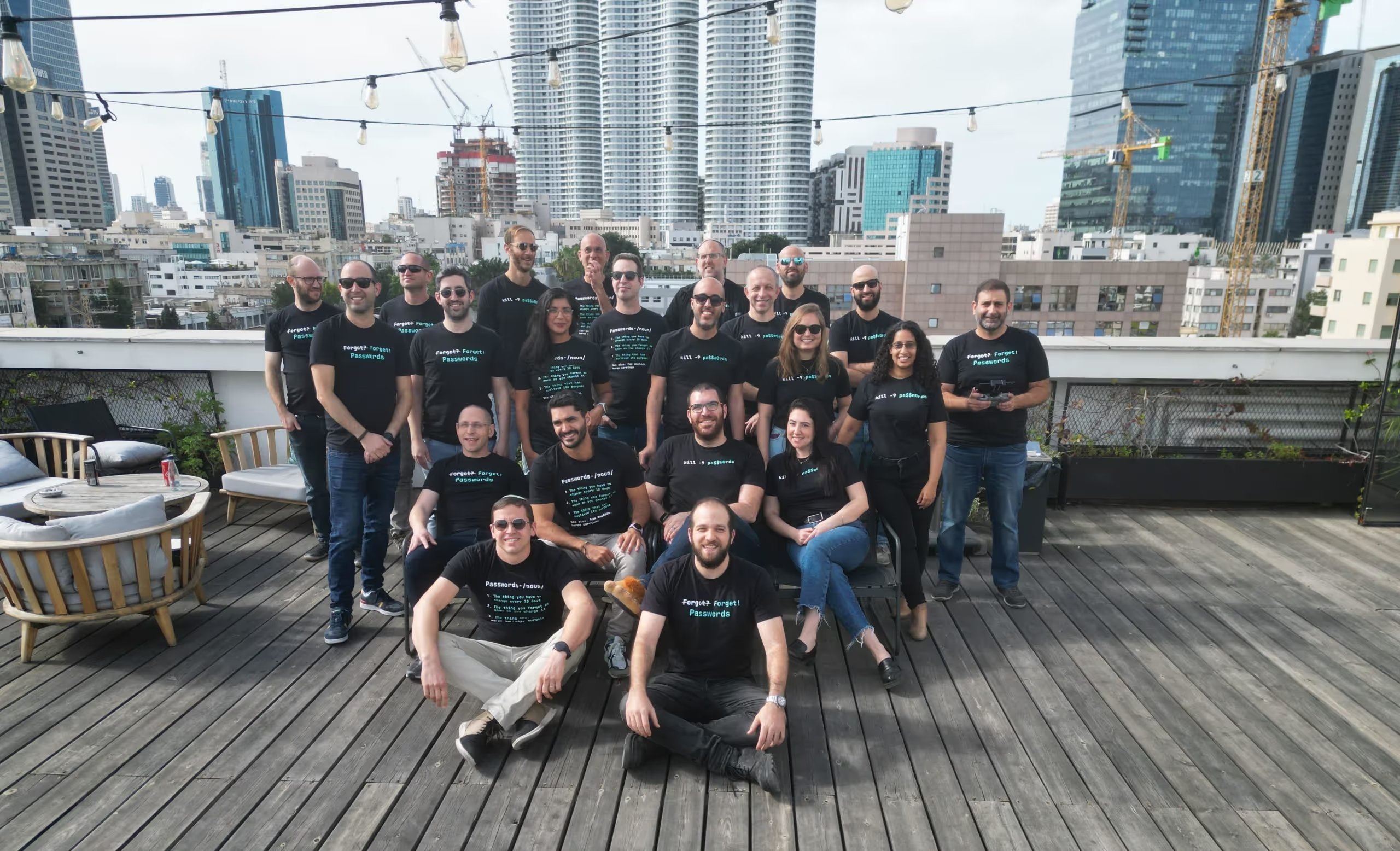
Descope team together on a roof top.
Another thing I’ve learned is that when you’re building a company, make sure to do it with people that you enjoy being around. We really try to hire like-minded people that we enjoy being around. You can see this at Descope. A lot of the folks here have been with us for decades.
On product development, in the beginning, I think it’s really important to control the process and learn from the process, not just throw something over the fence and kind of see what people do with it. So this is the “kind of” stealth approach we’ve taken with Descope. You build, you learn in an almost private beta-like environment.
But I’m also a firm believer that if you release something that you’re not slightly ashamed of, you released too late. You have to release something and be embarrassed when people say, “Hey, this doesn’t work!” That’s the fastest way to iterate and learn.
I’m also a firm believer that if you release something that you’re not slightly ashamed of, you released too late.
Off the Clock
I have four kids and two dogs. That takes quite a lot of time in and of itself. But in my off time, I run and do a lot of martial arts – karate, Taekwondo, all of those things. And I try to get in at least an hour a day of reading in. Sci-fi, fantasy, superheroes, all of those things. I like sci-fi classics from Frank Herbert and Isaac Asimov, but also newer fantasy like the Mistborn trilogy by Brandon Sanderson. Everything by him is great.

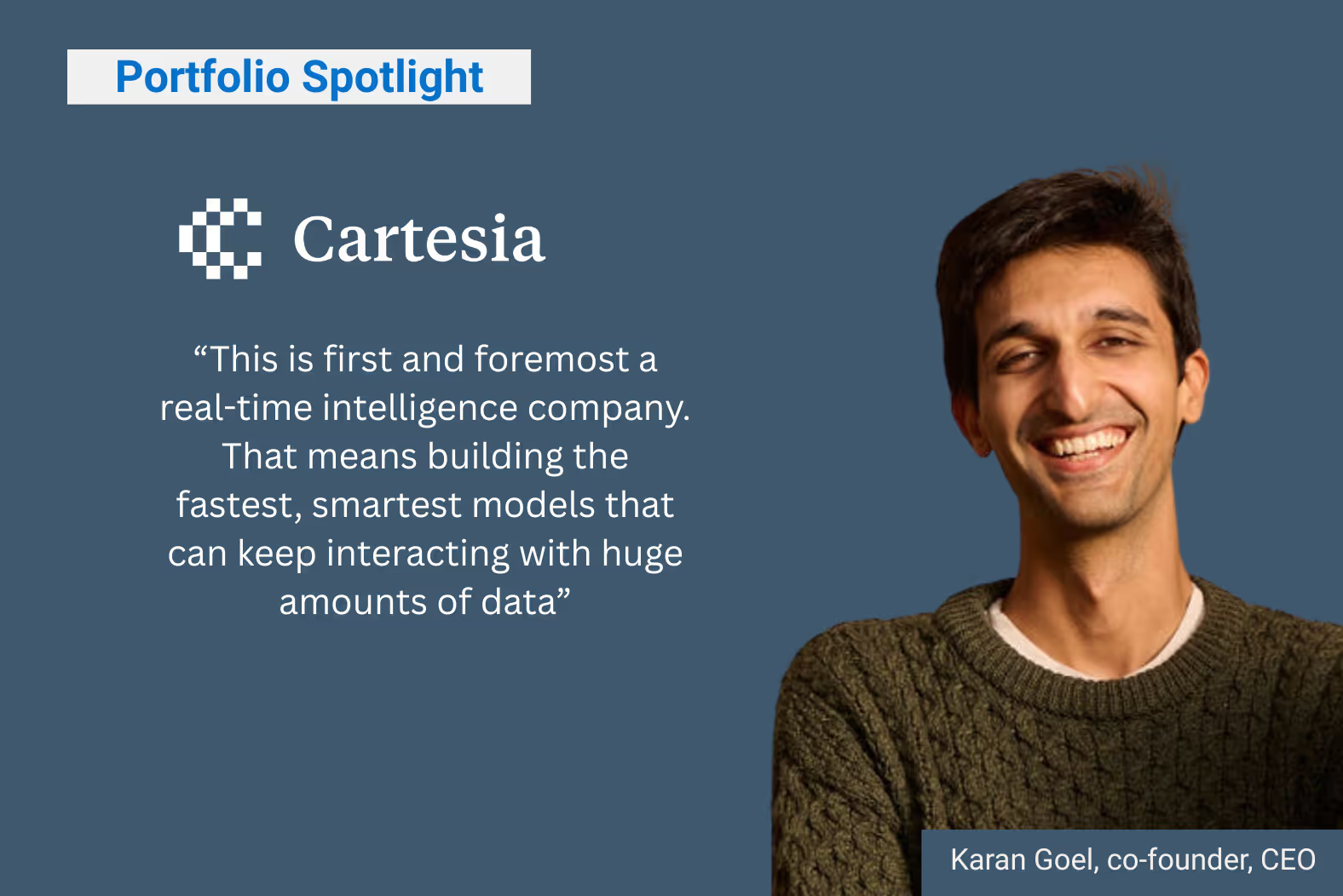
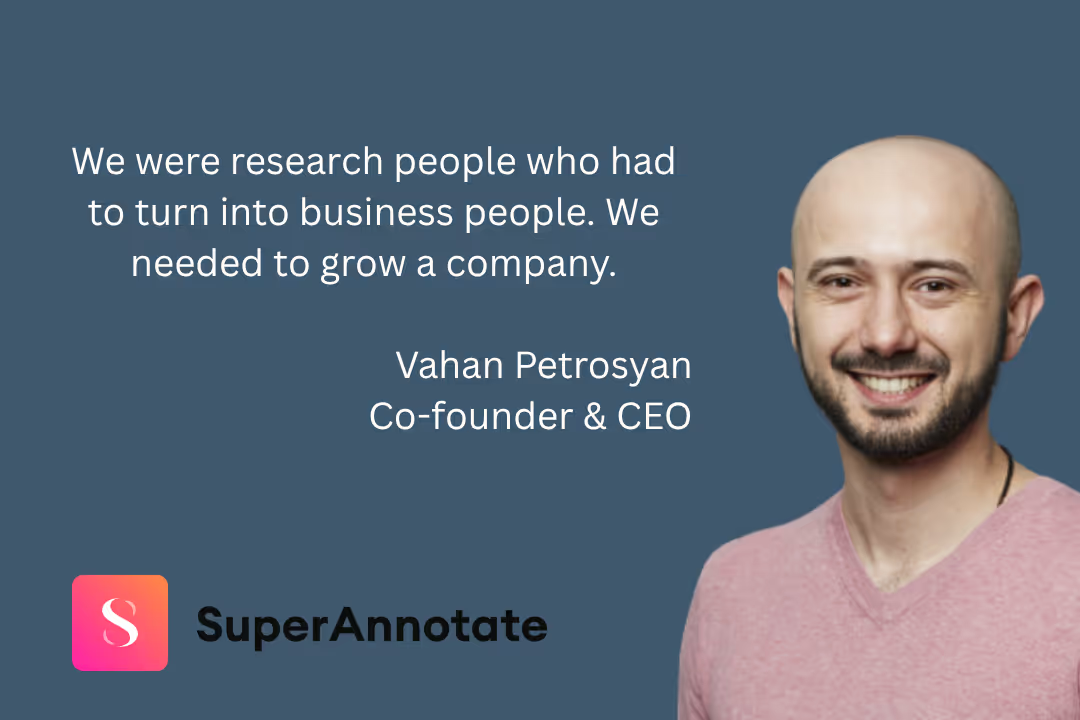

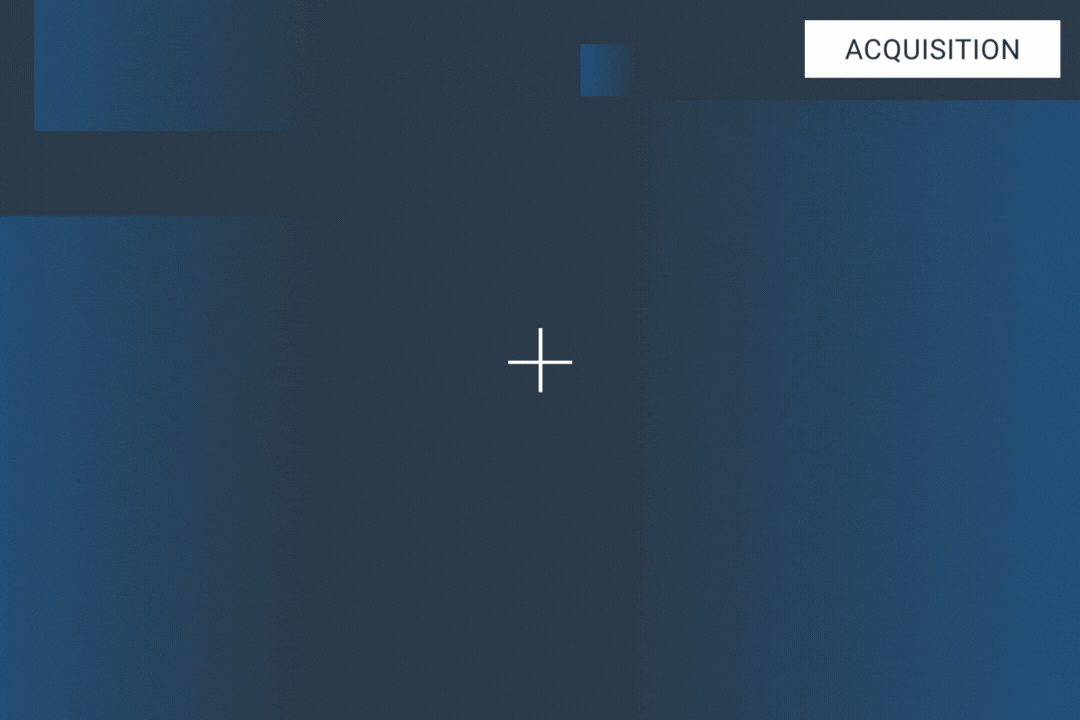
.png)
.png)